Professor Telyashev: ‘HRCC is a technological feat of the TAIF team’
“High convertion of heavy oils and oil residues” is the topic of the international conference held in Kazan by the Academy of Sciences of Tatarstan
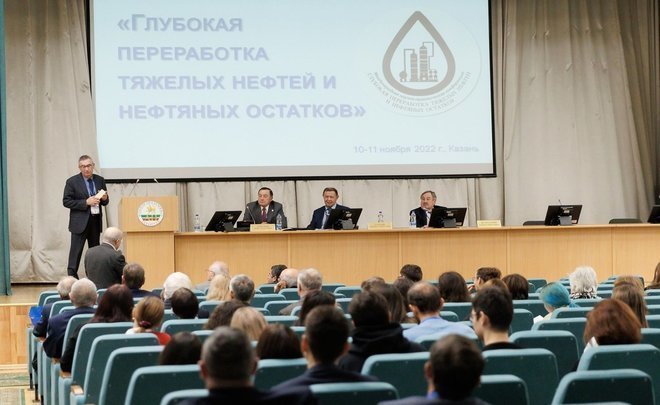
A new word in the processing of heavy oils and oil residues was introduced into scientific use by Corresponding Member of the Academy of Sciences of the Republic of Bashkortostan, Doctor of Technical Sciences, Professor Elshad Telyashev. Veba Combi Cracking technology, in fact, completely redesigned by the specialists of TAIF JSC and TAIF-NK JSC, is now called TAIF Combi Cracking. Why it happened and what other issues were discussed at the international conference — read in the material of Realnoe Vremya.
Relevant not only for Russia
There are fewer and fewer reserves of light oils in the world, and the question of high demand for technologies for not just distillation, but for high convertion of heavy, high-sulphur grades of oil is becoming more acute. Moreover, technologies are thought out, worked out, tested and implemented, where vacuum oil distillation residues, or simply oil residues, become the raw material for obtaining high-quality light petroleum products.
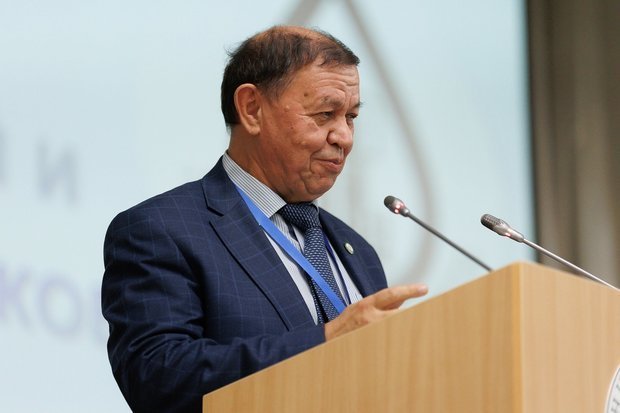
“We have gathered for our first international scientific and practical conference. The topic is well known to everyone — “High convertion of heavy oils and oil residues”. The topic is important not only for Tatarstan, but also for the whole of Russia. In recent decades, industry's interest in the processing of heavy oils and oil residues has increased significantly. This is especially relevant for our Volga oil, for the Republic of Tatarstan. Since half of the oil produced in Tatarstan is high-sulphur carbon oils," President of the Academy of Sciences of Tatarstan, Academician of the Academy of Sciences of the Republic of Tatarstan, Doctor of Physical and Mathematical Sciences, Professor Myakzyum Salakhov greeted the participants of the conference.
The topic is important and relevant not only for Russia. To discuss successes and difficulties, to share experience and best practices, luminaries of science and specialists of oil refineries, as well as companies manufacturing and supplying equipment for oil refining not only from a number of regions of the Russian Federation, but also from Iran, Japan, the Republics of Bulgaria, Belarus and Kazakhstan gathered in Kazan and joined the dialogue online.
The importance of the topic under discussion is also emphasised by that on the eve of the start of the conference, the professor who arrived in the capital of Tatarstan was invited to a meeting with the president of the republic. Rustam Minnikhanov stressed that a lot has already been done in the region in the direction of high convertion of oil and heavy residues of its distillation and expressed confidence that the experience of the republic will be interesting and useful to the guests.
Two days of heated discussions
Each of the participants had something to tell and share: successes, problems, questions, ideas. The discussion of the current topic lasted for two days. Two days full of bright speeches and heated discussions.
Mansour Bazmi, PhD, Vice President of RIPI (Iranian Oil Industry Research Institute), spoke about the plans and prospects for the development of the Iranian oil refining industry. He was also actively interested in the successes of other participants of the conference and, in particular, how the problem of asphaltenes is solved at the TAIF-NK HRCC.
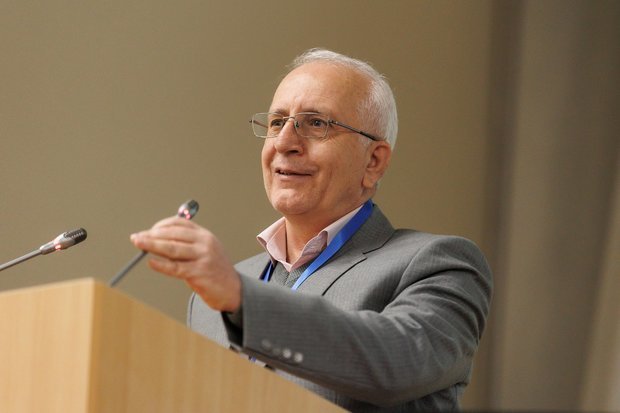
Andrey Yusevich, who represented the Belarusian State Technological University in Kazan, on the example of two Belarusian refineries that recently started pilot operation of new high convertion plants that embodied different technologies, told about the common problems faced by refiners in his homeland. It concerns petroleum coke, which we get a lot, but the quality does not yet allow us to call it a marginal product. The allied state has ideas on how to bring the technology to perfection. Moreover, the scientific community gathered in Kazan recognised that the effect is more than possible. Now we are looking for opportunities to implement the plans.
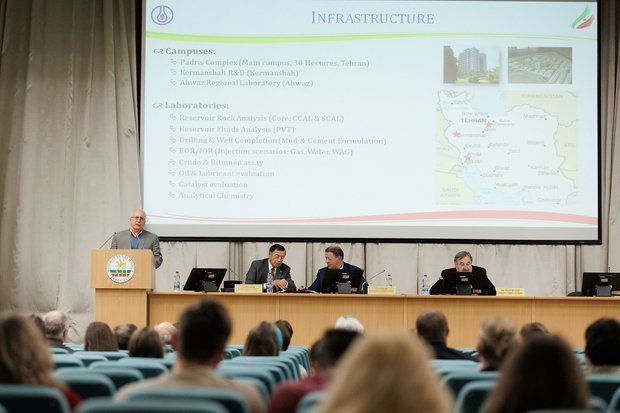
The chief technologist of LUKOIL Neftohim Burgas (Bulgaria), Doctor of Technical Sciences Dicho Stratiev shared his experience of introducing hydrocracking of tar in pseudo-boiling layer. The conversion of tar at Lukoil Neftohim Burgas refinery today exceeded 90%, but the epic with the optimisation of production parameters and the selection of mixtures of raw materials, periodic cleaning of equipment and a collapsing catalyst, voiced via videoconferencing, sounded like a mixture of horror and detective for those who are in the subject.
A lot of work is done in Tatarstan for high oil convertion
But the biggest attention was attracted by the performances of Tatarstan residents. And there are reasons for that.
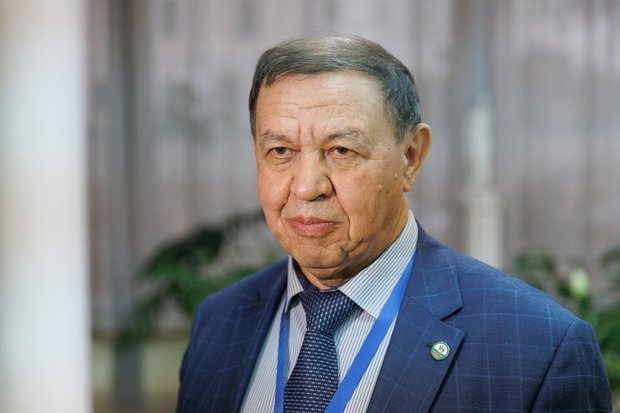
“TAIF and Tatneft systematically work hard to create and implement the most modern, advanced technologies for processing heavy oil residues. At TAIF-NK, the HRCC was put into operation using VCC technology and the conversion of tar of high-sulphur oil into light oil products up to 95% has been achieved. I think this is practically a world record, world achievement. The processes of hydrocracking and delayed coking are also operated at TANECO, and most importantly, successful tests of a demonstration plant operating using the original domestic hydroconversion technology developed under the guidance of our famous scientist Academician Hadjiev are underway," Myakzyum Salakhov said.
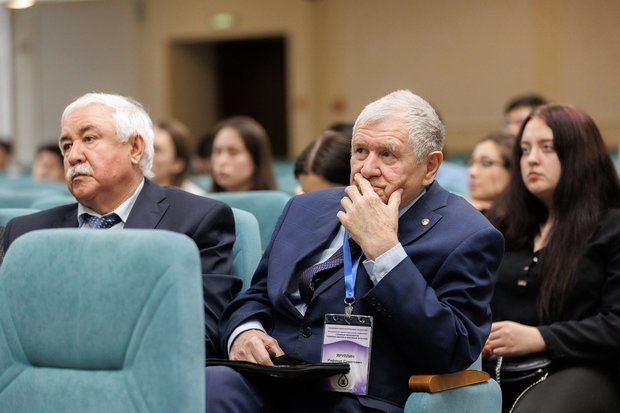
Doctor of Chemical Sciences Khusain Kadiyev, a follower and ambassador of the ideas of Academician Hadjiev, could not come to the conference — he was just working on a demonstration plant at TANEKO. In part, his absence was compensated by the speeches of Aleksey Rubtsov, Deputy General Director for Project Management and Investments of Promsyreimport, the company that supplied equipment for the project implementation to TANECO, as well as Professor Elshad Telyashev, scientific director of the Ufa Institute of Petrochemical Processing, also directly related to the implementation of the project to increase the depth of oil refining at TANECO. Both of them enthusiastically and vividly told about the participation of organisations that represent Tatneft in the success of the oil refining production, focusing on the advantages of domestic technologies.
TAIF Combi Cracking
Professor Telyashev generally often visits Tatarstan, actively participates in the events related to petrochemistry and oil refining. He does not miss the opportunity to talk about his institute and its achievements, advocates for a domestic product and slightly criticises companies that build production based on foreign achievements, equipment and technology. He also criticised TAIF a little, including during the construction and commissioning of the Heavy Residue Convertion Complex.
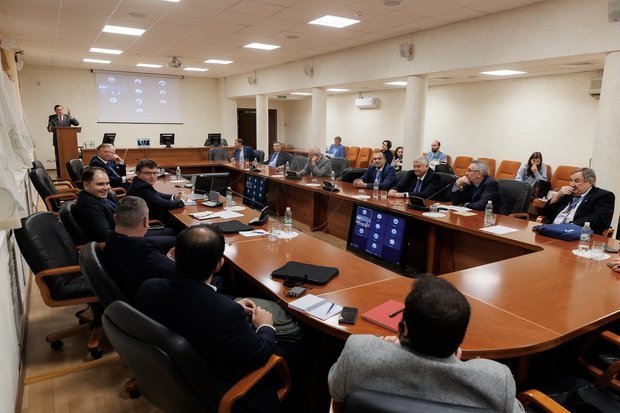
“The technology that is being implemented at TAIF today is a pioneering technology. We had suggestions on how to adapt it to a modern plant, namely TAIF's one in Nizhnekamsk. Or how to integrate this technology with other enterprises in the region," he said in an interview with the journalist of Realnoe Vremya. However, before the TAIF representatives spoke, the professor refrained from giving any assessment based on the data available to him.
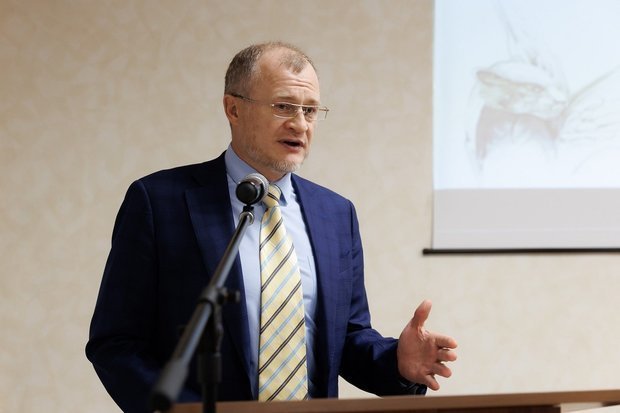
After Rustem Akhunov, the head of the Petrochemistry and Oil Refining Department of TAIF JSC, spoke about the company's experience in using hydrogenation processes in the processing of heavy oil distillation residues, Andrey Konovnin, the director of the HRCC, told about how the project for high convertion of tar using VCC technology was implemented, what difficulties encountered and how they were managed. The deputy head of the TAIF Oil and Refining Department, Marat Idrisov, supplemented his colleagues with information about how heavy residues from the processing of actually heavy oil residues at TAIF-NK have are turned into demanded raw materials for bitumen production, and Aleksey Khramov, Chief Engineer of TAIF-NK JSC, concluded his colleagues' speech with a message about that even the residual product of combined thermo- and hydrocracking of tar in production was turned into a sintering additive, which Russian metallurgists are already actively interested in, Professor Telyashev could no longer restrain emotions.
“We praised the Bulgarians for their experiments. They are heroes. There is no such experience of conducting laboratory search experiments anywhere. They solved the most difficult optimisation problem under a variety of conditions. But here — in the case of TAIF, these are no longer experiments — here is a technological feat. This is the team that got an unfinished process into their hands that is not implemented in the form in which it was presented by the licensor, they themselves brought it to mind. This, in fact, is no longer Veba Combi Cracking, but TAIF Combi Cracking. Objectively. And there is every reason to patent the process and become real licensors. This is without any jokes. This is in all seriousness," Elshad Telyashev stressed. And this recognition is worth a lot.
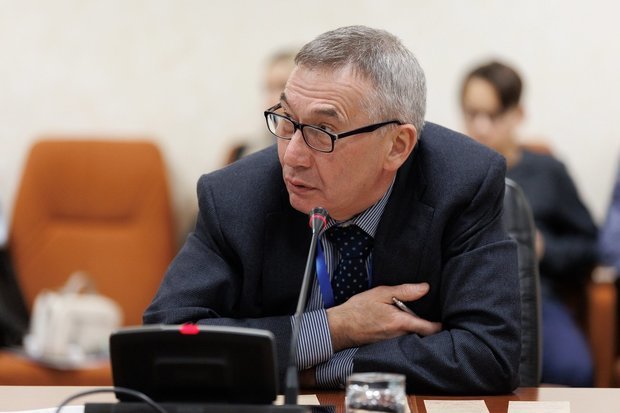
His opinion is shared by Farid Minigulov, the chief adviser to the director general of TAIF for petrochemistry. He stressed that a serious group of specialists worked on the project in TAIF under the leadership of: Albert Shigabutdinov, Director General of TAIF JSC, Vladimir Presnyakov, Deputy Director General of TAIF for Petrochemistry and Refining, Ruslan Shigabutdinov, Deputy Chairman of the Board of Directors of TAIF JSC, Rustem Akhunov, Marat Idrisov, Andrey Konovnin, Aleksey Khramov and many others — it would take more than one page to list all the specialists who have put their hand and knowledge into the work of the HRCC in the pilot-industrial mode.
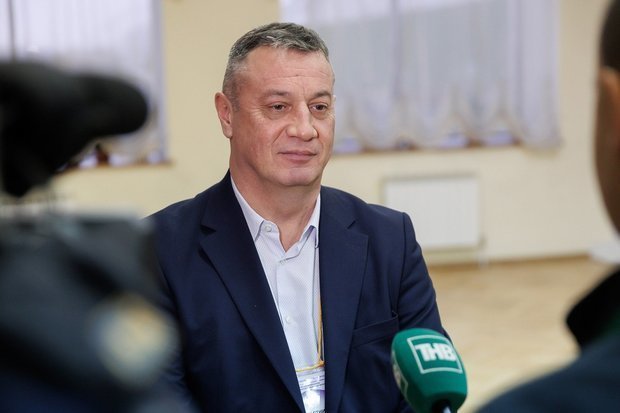
“The technology that is implemented and used by TAIF now gives the best results on a global scale. And the results are primarily not from the point of view of technology, the beauty of production processes, but from the point of view of economics. Today, for TAIF-NK and, possibly, for many other refiners, it is the only one possible in order to effectively pay for the work of the refinery. I am talking about heavy oil," Farid Minigulov stressed. And he added that the experience gained by the teams of TAIF JSC and TAIF-NK JSC will be in great demand by refiners not only in Russia, but also around the world — it is always easier to follow the beaten path. I think that those people who will turn to this oil refining technology at home after us, using the experience of TAIF-NK, they will save at least several hundred million dollars for several years. A lot of serious things have been done and their effectiveness has been confirmed.
The work continues
The work on improving the technology and adapting it to new geopolitical and economic realities continues. This was also discussed at the conference. In particular, the issue of import substitution of coal additives necessary for the process of increasing the conversion of heavy raw materials into light petroleum products. TAIF has found an alternative to German coal. But there is no limit to perfection, and the company is ready to cooperate with those who can offer the best technologies with greater efficiency. In particular, we are talking about this with Academician of the Russian Academy of Sciences, Doctor of Chemical Sciences, Scientific Director of the Federal Research Centre for Coal and Coal Chemistry of the Siberian Branch of the Russian Academy of Sciences, Professor Zinfer Ismagilov.
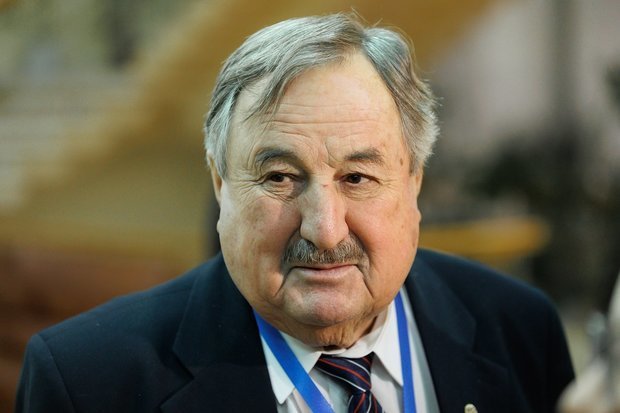
“Now the import has mostly stopped, and now we can do a good scientific work on coal additives and offer TAIF technology. Our approach is following: it is necessary to work systematically. There is a whole bank of many different grades of coals, it is necessary to study in order to reach a system — permanently stable result. It is still too early to talk about joint work: we have to prepare protocols, prepare joint documents, and then we will come to concrete matters. But we have a proposal, and TAIF has a very great interest in our work," Professor Ismagilov said in an interview with Realnoe Vremya.
And this is not the only result of the conference. Agreements on further joint work are taken away from Kazan by many participants of the event. By the way, in 2023 they will have the opportunity to tell from the same podium about the successes they have achieved over the past time.
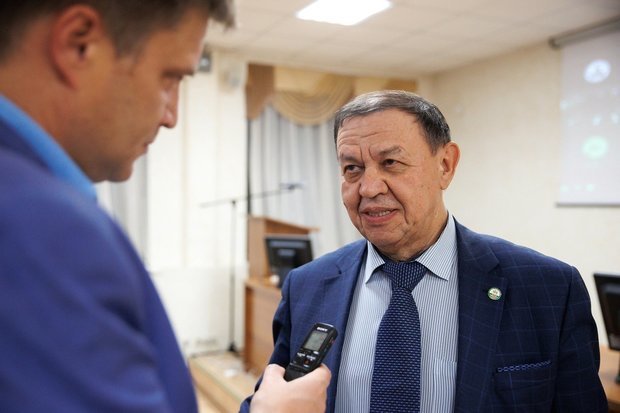
“This conference is planned as an annual one. We produce heavy oil, and it is not easy to process it. And if there are obstacles, then you need to look for solutions. Currently, Tatarstan has two of the best units in the world — in TANECO and in TAIF, capable of processing heavy oil residues and heavy oil with a yield of light petroleum products of 95 percent or more. And this achievement can and should be shared with partners. Now scientists from several countries have gathered in our city. And such communication always gives something to all parties. Therefore, there is the solution: we plan to meet annually," Myakzyum Salakhov stressed in a conversation with the journalist of Realnoe Vremya.
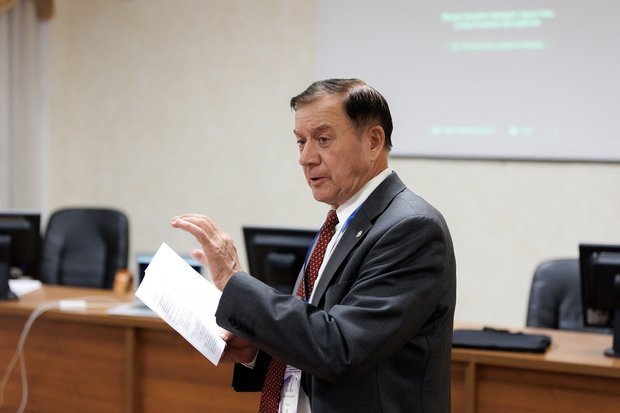
Perhaps, by that time, there will be more candidates and doctors of sciences in the republic. This assumption was made at the end of the first day of the conference by Doctor of Technical Sciences, Professor, Academician of the Academy of Sciences of the Republic of Tatarstan and IAS Akhmet Mazgarov:
“I think the reports that we have heard from TAIF specialists, in a year we will have the opportunity to listen to in an expanded version — in the form of candidate's and doctoral dissertations. We expect you to continue working not only in the technical and technological direction, but also in a purely scientific one. That is, to turn your developments into your dissertations," he addressed the speakers representing the Group at the conference.